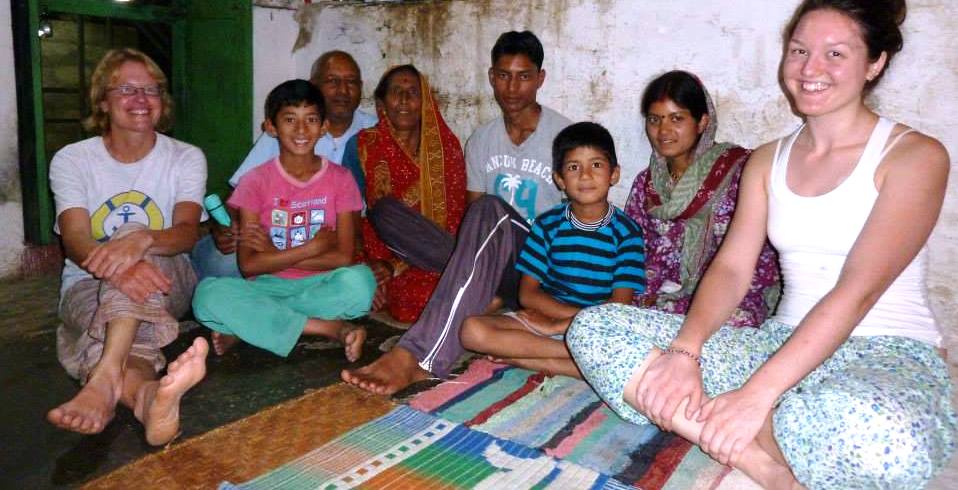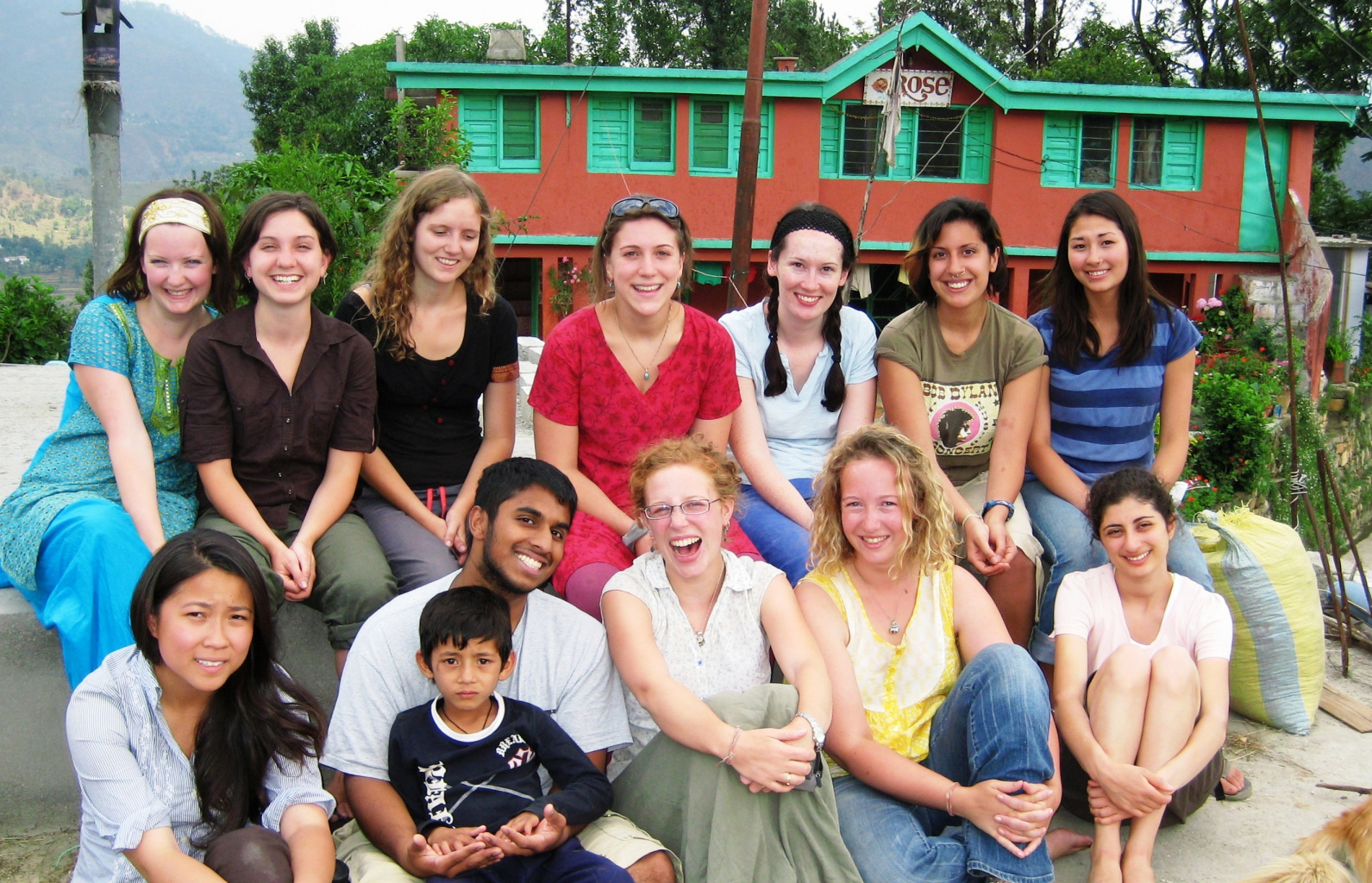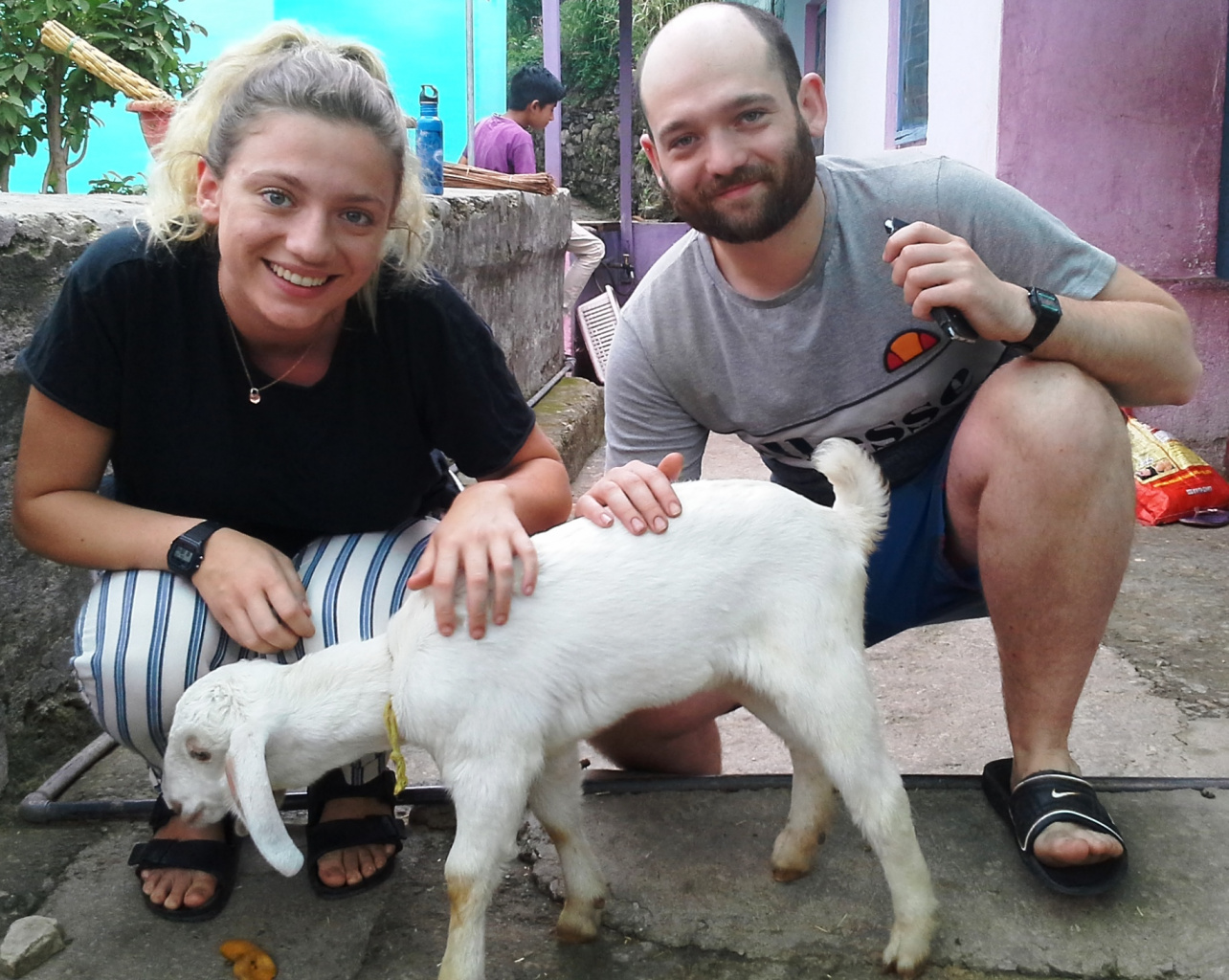
Gopal Ratna Jeevan Lal Verma is how he is fondly called after he was awarded the ‘Gopal Ratna’ for his devoted services by Honorable Radha Mohan Minister of Agriculture & Farmers’ Welfare under Rashtriya Gokul Mission for the First position in North East & Hill Zone.
Hailing from Uttarakhand, the North Eastern State of India known for the Himalayas, holy rivers, spiritual centres, and spellbinding landscapes, Jeevan Lal Verma was naturally inclined towards social work to help the needy in his home State.
In an Exclusive Interview with EcoTourism Expert, Jeevan Lal Verma tell his story with elan; but also explains at length the various activities undertaken by ROSE, which provides solace to the people of the State.
- Please tell us your story …on how, why and when you entered this sector?
- My name is Jeevan Lal Verma, I was born in the village of Sunargoan, which is in the Kanda, Bageshwar District of the Kumaon region in Uttarakhand, North India. My family business was in jewellery making, we had a Goldsmiths called Sunar, so our village is called Sunargoan. I studied in Inter college Kanda, ITI Training Almora and National Apprenticeship at Scooters India limited Lucknow. After completing my studies and spending life in the city, it was a ‘Call’ I felt in my heart and I decided to do social work within my village. I felt the urge to do social work because I had a helping nature. I had always suffered from a lack of money, but my soul told me to serve the local community. I made it my hobby to connect to the whole of the world, so I participated in many training projects, workshops, visits and conferences by the youth leadership and as a social activist.
It was June 1988, I participated in a workshop where I met some foreign visitors. One was a representative from a Volunteer sending organization; he was looking for a host family. The idea was to host overseas volunteers and help them to engage with work camps in rural development, environmental protection, disaster relief and other activities. I was happy to host international volunteers and accepted the offer.
- And what propelled you to expand into tourism-related fields over the years?
- In August 1988, I hosted eight international volunteers from different nations. They participated in 15 days of homestay, cultural exchange and social & rural development work camps. That was my first experience and it was very successful. My family and the whole community gave the visitors a warm welcome.

The community and youth of Kanda participated and my family was very cooperative with hosting the international volunteers, who adjusted very well to our family life. I felt good because the visiting group were very flexible, civilized and had a good sense of humour. It was a valuable exchange because I learnt some skills and increased my knowledge from them.
As this first experience was such a success, more volunteers were sent from the organization. All the visitors had tourist visas and when they came to Sunargoan they appreciated the beauty of their natural surroundings as well as sampling unique Kumoan organic local dishes and exchanging cultural activities. There was also the opportunity to engage in local religious Hindu Ceremonies and Festivals. In addition, there was practical work such as rural development projects, building construction and craft activities, which hugely increased the local villages social welfare and rural development.
Some of the volunteers suggested that it would be a better idea to invite future volunteers directly so that I could earn money for the community, which previously would have gone to the volunteer organization. Visitors were then able to connect to me directly from places such as the UK, Holland and the USA and I hosted some volunteers every year. Due to lack of marketing skills and adequate communication equipment sometimes the number of visitors were few. However, with patience and with new communication equipment I was able to connect to non-profit volunteer organizations. I placed an entry detailing this opportunity in an International directory publication. This resulted in more visitors arriving in Sunargoan. At the start of 2000, some of the volunteers published their good experiences in an international magazine.
- What steps did you take to garner help and support for your venture?
- There has been much interest in our projects at Kanda. Professor T. V. Singh and Prof Shalini Singh of the Centre for Tourism Research and Development in Lucknow studied in Kanda and published a research article on Altruistic Tourism; ‘Another Shade of Sustainable Tourism – The case of Kanda’.
In 1999 Brigid McKay, financed by the International Centre for Integrated Mountain Development (ICIMOD), of Kathmandu, Nepal wrote an article on Eco-Tourism in Kanda.
Pekka Mustonen (Finland) in 2004 and Eric Coleman (USA) in 2005 both researched here as part of their University work. Many of our visitors are international University students and when they return home, they relate the opportunities offered to friends and write articles for their University magazines.
In 2002, we hosted two visitors from Canada television. They were making a TV documentary about remote areas such as Kanda and included the grass-root works of ROSE. The news channel of a Canadian broadcasting corporation broadcast the film.
I participate in international seminars, workshops, training programs, fairs and festivals in India and exhibit photographs of the volunteers and village/tourism so people are aware of the opportunities we provide. In 2004, we were able to arrange a computer and connect to the internet. Our UK and Canadian visitors developed our website www.rosekanda.org as a further channel for publicity.
- For the benefit of our readers, please tell us more about your organization‘ - ROSE’. What’s the thought behind starting it, and what are its activities?
- ROSE (Rural Organization for Social Elevation), is a social awareness centre for Kanda and a local self-help voluntary group. More information is available on the ROSE website. Now, ROSE is connected to many tour operators, international and national universities, NGOs, institutes and governments as well as other community-based tourism projects.
In the meantime, rural tourism in Sunargoan Kanda was highlighted in printed media internationally and nationally and on the internet etc. We have a worldwide family of family members (past visitors) who publicize rural tourism home-stay to their friends and contacts. Now every month we host foreign tourists for stays ranging from one day to six months. Recently we successfully hosted Hungarian volunteers funded by the Planet Foundations Hungary a project of European Voluntary Service Budapest for six months.
Some institutes have invited me as a panellist and Universities have honoured me for the fruitfulness of my efforts in sustainable tourism. Our mission is to uplift the plight of the poor by providing jobs through social welfare activities such as the construction of low-cost houses, toilets, cattle sheds, kitchens and bathrooms for needy families. I am a member of the local community so my family has also benefited. Many of the unemployed in our community have found jobs through construction work, the collection of materials, transportation, shop-keeping, taxi ownership, craftwork, musicianship, vegetable growing and selling, egg and meat selling. My seven family members now work as managers, cooks, housekeepers and guides.
We provide integrated tourism opportunities in nature watching, cultural exchange, healthcare, voluntary work in social welfare, anthropology, heritage and archaeological visits, blacksmith visits, visits to local villages and forests, learning livestock rearing and many other activities.

Through integrated tourism, we provide the opportunity for learning in the areas of Hindi and Kumaoni language, English teaching, wool bamboo and woodcrafts, gold and silver jewellery, biodiversity, spirituality, unique Kumaoni cookery, organic farming, tea gardening.
- What are the activities undertaken by your company? And how have your efforts helped grow your State’s economy and as an ecotourism centre?
- Rural development, water harvesting tanks, toilets construction, low-cost house construction, renovated old houses, path and road maintenance, ecodevelopment, promoting organic farming, improving local cow breeding, improving local goat breeding, implementation of solar lights, promoting rural tourism and so on...
- What services do you offer tourists in general? How popular is your company in attracting overseas visitors? Give us more information in this regard.
- Development education, learning by doing practice on craft skills; building construction; carpentry/gold smith/bamboo/blacksmith/organic farming; learning Hindi language and teaching English/math/science…, gaining experience about local rural lifestyle/livelihood/environment eco-development; Spirituality, culture exchange, religion, community, family life, Indian unique organic food cooking, NGO office management, and others as and when required.
- Since the inception of your company, what new services have you introduced to foreign visitors, to make their trip educational and comfortable?
- If visitors transition increases we generate funds or we receiving donation funds. We then provide improved housing, toilets and bath facility, power backup, office room, classroom, yoga centre, good transportation, guide facility, shop near homestay, improving food dishes etc according to the availability of funds.
- In the ecotourism field, what are the activities undertaken by you to encourage tourists' participation and thereby understand our culture?
- We are involved in the ecodevelopment of the Kanda areas; clean environment around the homestay; manage beautification of the homestay and surrounding, Wi-Fi facility, power backup and so on…
- Give us an idea about how you manage many tourists groups to various areas simultaneously? How are your staff equipped to protect the tourists by taking safety precautions? Give us more details, please.
- We manage tourists group as my family members, they were very flexible adjust with my family and community very well as well as our simple and peaceful home. They help in every field like management of housekeeping, cooking, mini dairy, goat unit, kitchen gardening, office help, family and community events and others, work camp, volunteering social service, helping the community and needy families.

We have no staff but it’s only my family members … me and my wife, 2 sons and 2 daughters-in-law, 2 grandsons. When more visitors come, then some community family members find employment as housekeeping, food and fuel management, transportation, as a guide for a nature walk/spiritual visit/cultural exchange/educational visit, and for helping in building construction and others.
About the safety of our area, we have had known visitors/tourists transactions since 1988, so no issue regarding safety. However, we intend to watch and be careful in the future. We are providing foreigner arrival report to our Police station and find help for social security. My house is safe for foreigners since 1988. Till today, we have no complaints from foreigners.
